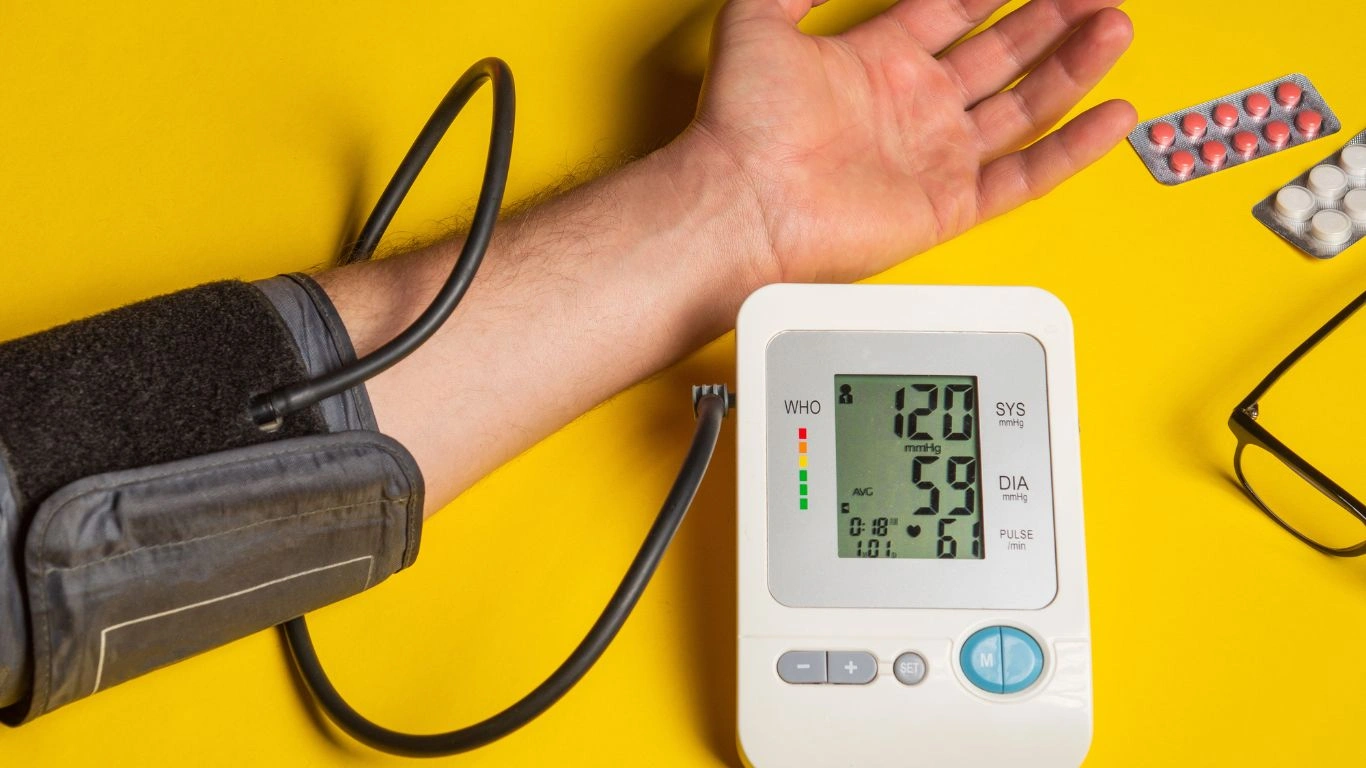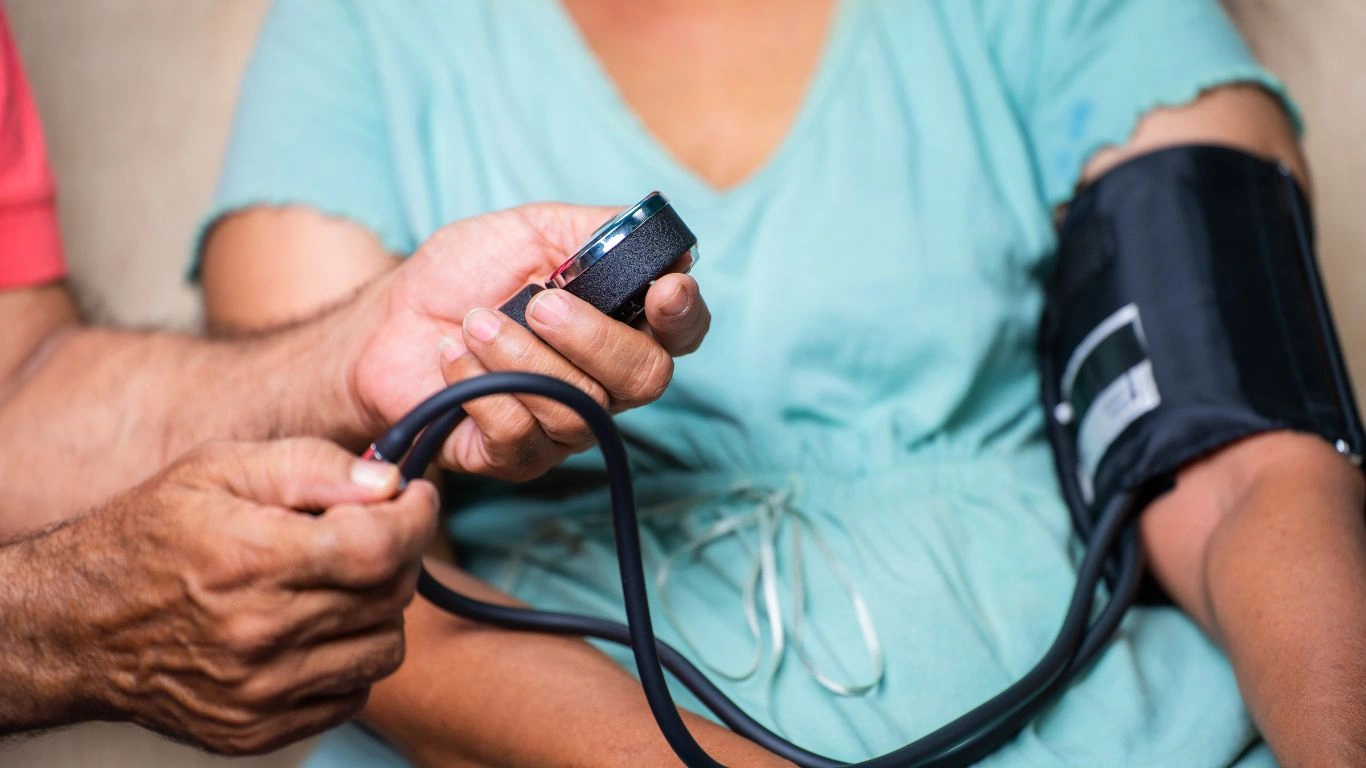Shocking Truth: Can Too Much Protein Raise Blood Pressure Risks?
Can too much protein raise blood pressure? That’s a question I get surprisingly often in my clinic—usually from patients who are trying to do the right thing for their health but feel stuck in the middle of conflicting nutrition advice. As an Internal Medicine physician with a focus on hypertension management, I’ve seen firsthand how diet—especially high-protein diets—can influence blood pressure in both subtle and not-so-subtle ways. Let’s be real, nutrition isn’t one-size-fits-all. What helps one person might hurt another, especially when high blood pressure is part of the picture.
How Protein Became the Star of the Plate

Protein has had quite the PR glow-up over the past decade. From keto to paleo to just about every gym-inspired diet, protein is everywhere. We’re talking protein bars, protein water (yes, that’s a thing), and protein-packed everything. And hey, I get it—protein keeps you full, helps maintain muscle, and plays a big role in healing and metabolism.
But just because something is good doesn’t mean more is better. Patients often come to me, bragging (kind of) about their daily 150g+ protein intake, expecting a gold star. Instead, we dive into what that’s actually doing to their cardiovascular system, especially their blood pressure.
Is All Protein Created Equal?
Here’s where it gets interesting. Not all protein has the same effect on your body. Animal-based proteins—think red meat, processed meats, full-fat dairy—can come with a side of saturated fats and sodium, which we know are bad news for blood pressure. On the flip side, plant-based proteins like lentils, beans, tofu, and quinoa often come bundled with fiber, antioxidants, and potassium, which can help lower blood pressure.
Translation: Eating a steak every day is not the same as getting your protein from black beans and a quinoa bowl.
What the Science Says (And What It Doesn’t)

The relationship between protein intake and blood pressure isn’t black and white—more like a complicated shade of gray. Some studies show that moderate protein intake, especially from plant sources, may lower blood pressure. Others raise a red flag when protein intake becomes excessive, especially if it’s paired with high sodium levels or comes from animal sources.
Let’s break it down:
- Moderate protein intake (0.8g – 1.2g/kg of body weight): May help reduce blood pressure, especially in overweight individuals.
- High protein diets (1.6g/kg or more): Can raise blood pressure if they increase sodium retention or reduce potassium intake.
- Animal proteins: Linked in some studies to higher blood pressure when consumed excessively, likely due to saturated fats and other compounds.
- Plant proteins: Tend to have a protective effect, thanks to the fiber and antioxidants that help relax blood vessels.
Real Talk from the Exam Room
I’ve had patients come in feeling confused after switching to a high-protein diet. One patient—let’s call her Lisa—started eating grilled chicken for almost every meal, swapped oatmeal for egg whites, and added whey protein shakes twice a day. She was doing it to lose weight, but after three months, her blood pressure readings were up. No new stressors, no weight gain, nothing obvious. But she had unknowingly doubled her sodium intake because of those pre-seasoned proteins and added sauces.
Here’s the kicker: Even so-called “healthy” high-protein diets can backfire if you’re not watching the details—like hidden salt or lack of potassium-rich foods.
So, Can Too Much Protein Raise Blood Pressure?

The short answer? Yes, it can—under certain conditions. When someone overshoots their protein intake and ignores other important nutrients (like potassium, calcium, magnesium), the balance gets thrown off. Kidneys may retain more sodium, vascular resistance may increase, and blood pressure can creep up without warning. I’ve seen this happen in my own practice, especially among fitness-focused patients who believe more protein equals more health.
What Should You Look Out For?
- Read labels on protein powders, shakes, and bars—many are packed with sodium.
- Watch for portion creep. One extra scoop here, another grilled chicken breast there, and suddenly you’re way over your daily needs.
- Balance high-protein meals with leafy greens, legumes, and potassium-rich foods like bananas, sweet potatoes, or avocados.
Remember, protein isn’t the villain. But it’s not the superhero either—especially when we isolate it from the rest of your diet and lifestyle. Blood pressure management is about balance, not extremes.
Why Balance Matters More Than Macros

So now that we’ve unpacked the connection between protein and blood pressure, let’s zoom out a bit. In medicine—and honestly, in life—balance is everything. I can’t count how many times I’ve told my patients that it’s not just what you eat, but how it all fits together. Yes, protein is important. But when someone focuses so much on macros—protein, carbs, fats—that they lose sight of micronutrients, fiber, hydration, or even sleep… that’s when trouble starts brewing.
Let me give you an example from last week. A young guy in his early 30s came in with borderline hypertension. He was shocked. “But I eat super clean!” he said. And he did—if you looked at his macros. Tons of grilled chicken, eggs, turkey bacon, protein powder smoothies. But not a vegetable in sight. His potassium was low-normal. Fiber intake? Pretty much nonexistent. That’s not a recipe for heart health, even if your abs look great in the mirror.
Micronutrients That Play a Role in Blood Pressure
If you’re dialing up your protein, you’ve gotta support it with the right nutrients that help your cardiovascular system stay relaxed and functional:
- Potassium: Found in bananas, spinach, sweet potatoes—it helps counteract sodium’s effects.
- Magnesium: Needed for vascular relaxation. Think nuts, seeds, leafy greens.
- Calcium: Not just for bones—it’s involved in vascular contraction and dilation. Good sources include dairy, fortified plant milk, and broccoli.
Pro tip from clinic life: When my patients up their protein intake, I always remind them to also up their plants. That’s the formula for long-term success—not just for blood pressure, but for energy, digestion, and immunity too.
When High Protein Meets High Sodium: A Sneaky Combo

This is where a lot of people get blindsided. They focus so much on protein that they don’t notice the sneaky sodium creeping into their day from sauces, marinades, deli meats, canned tuna, and even protein powders. I’ve had folks consuming over 3,500mg of sodium a day without realizing it—all in the name of lean muscle.
Why does this matter? Because excessive sodium intake can amplify the blood pressure-raising effects of too much protein. The kidneys get overloaded, water retention increases, and blood vessels tighten up—boom, elevated readings on your BP cuff.
Label Reading Tips (Straight from My Prescription Pad)
- Always check the sodium content per serving, especially in protein-rich items like jerky, rotisserie chicken, and cottage cheese.
- Choose unsalted or low-sodium options when possible—trust me, your heart will thank you.
- Watch for “hidden” sodium in seasonings, sauces, and premade spice mixes. They’re often overlooked culprits.
I’ve had patients make this one small shift—swapping salty protein snacks for whole food sources—and within a few weeks, their BP drops back into a healthier range. It’s wild how fast the body responds when you take the pressure off—literally and figuratively.
Can Too Much Protein Raise Blood Pressure? Let’s Talk Stress & Cortisol

Here’s something most people don’t talk about when they ask, “Can too much protein raise blood pressure?”—the indirect effects. See, some high-protein diets (especially the super low-carb ones) can mess with your cortisol levels, especially if you’re overtraining or under-sleeping. I’ve seen it more times than I can count in my more athletic patients or those doing extreme intermittent fasting.
Elevated cortisol leads to increased blood pressure. It’s part of your body’s natural stress response. Add that to poor sleep and stimulants (like pre-workout supplements), and suddenly you’ve got a cocktail that’s not so heart-friendly—even if your meals look “clean.”
Real-Life Red Flags I See in Clinic
- People who report fatigue and irritability on high-protein, low-carb plans (could be cortisol overload).
- Folks who cut carbs too hard and stop sleeping well—insomnia triggers a rise in blood pressure.
- Fitness enthusiasts who overtrain, skip rest days, and unknowingly tax their adrenals.
It’s not just about protein quantity, but how that intake affects your whole hormonal ecosystem. That’s why I always ask my patients about sleep, mood, energy, and training volume when we talk about diet.
So, What’s the Sweet Spot?
I wish I could say there’s a magic number for protein that fits everyone—but it truly depends on your age, weight, kidney function, activity level, and health goals. That said, here are some general ranges I share with my hypertensive patients:
- Sedentary adults: 0.8g/kg of body weight is usually enough.
- Active individuals: 1.2–1.6g/kg is typically safe if other nutrients are balanced.
- Over 2g/kg consistently? I’d take a closer look at blood pressure, kidney function, and electrolyte balance.
If you’re doing everything “right” and your BP is still creeping up, protein may be playing a role—especially if you’re stacking it with stress, sodium, and skipped veggies. In my practice, the patients who thrive long-term are the ones who zoom out and look at the full picture, not just the macros on their app.
How to Keep Your Protein Intake Blood Pressure-Friendly

By now, you probably see the pattern. It’s not that protein is bad—it’s that context is everything. If you’re asking, “Can too much protein raise blood pressure?” the answer really depends on how you’re getting that protein, what else you’re eating, and how your overall lifestyle stacks up. I’ve seen patients do beautifully on higher-protein diets when the rest of their health puzzle fits together.
So, if you’re trying to keep your protein intake in check without throwing your blood pressure off, here’s what I usually recommend in real-life, everyday terms:
1. Diversify Your Protein Sources
Don’t lean on just chicken, eggs, or protein shakes. Try mixing in:
- Legumes: Lentils, black beans, chickpeas – all rich in fiber and potassium
- Tofu & Tempeh: Great plant-based options, easy to season and cook
- Quinoa: A complete plant protein and super versatile
- Nuts & Seeds: Especially almonds, pumpkin seeds, and chia seeds (just watch the portion sizes)
One of my favorite weeknight dinners? A quinoa bowl with roasted sweet potatoes, black beans, avocado, and a drizzle of tahini. Balanced, filling, and my blood pressure loves it too.
2. Keep Sodium In Check—Even When It Looks “Healthy”
Always, always look at the nutrition label. Even foods marketed as “clean” or “low carb” can be super sneaky with sodium. I once caught a so-called “fit” frozen meal with over 1,000mg of sodium—and that was just one serving. Pair that with a salty protein bar and some deli meat, and you’ve just hit your daily sodium limit before dinner.
3. Pair Protein with Potassium-Rich Foods
I can’t stress this one enough. Potassium is one of your biggest allies in keeping blood pressure in check. It helps balance out the effects of sodium and supports healthy kidney function. When patients increase their potassium-rich food intake, I often see improvements in their BP readings within weeks.
Think bananas, spinach, sweet potatoes, oranges, avocado, and beans. Easy swaps that make a big difference.
Personal Reflections from the Clinic

Something I’ve noticed over the years? A lot of people assume that if something is “good,” then more must be better. But health doesn’t work that way. Moderation and balance will always beat extremes. I had a patient—not too long ago—who was a personal trainer. Ate clean, worked out daily, and took his protein very seriously. But his BP was borderline high, and he couldn’t figure out why.
Turns out, his protein powders were loaded with sodium, his hydration was low, and he wasn’t eating many veggies. Once we made a few simple tweaks—lower-sodium protein, more potassium-rich produce, better hydration—his BP dropped within a month.
Sometimes, it’s not about overhauling everything. It’s about adjusting the little things that add up.
Signs Your Protein Intake Might Be Affecting Your Blood Pressure
Here are a few red flags I watch for with patients who might be overdoing it on the protein front:
- Sudden increases in blood pressure despite a healthy weight and regular activity
- Bloating, water retention, or swelling in the ankles
- Frequent headaches or dizziness without a clear cause
- Elevated BUN or creatinine on lab work (a sign the kidneys may be under stress)
If you’re seeing any of these, it’s worth having a conversation with your doctor or dietitian. You might not need to cut back completely—but you might need to rebalance your plate.
Final Thoughts: The Verdict on Protein and Blood Pressure
So, circling back to our original question—Can too much protein raise blood pressure? Yes, it definitely can, especially when it’s coming from sodium-heavy or highly processed sources, and when it’s not paired with enough balancing nutrients like potassium and fiber. But in the right context, with smart choices and a whole-foods-first approach, protein can be part of a heart-healthy lifestyle.
As a physician, I don’t recommend blanket rules. I recommend tailored strategies based on your labs, your lifestyle, and your goals. That’s how we protect your heart while still supporting your muscles, metabolism, and longevity.
In short? Eat smart, read labels, mix it up, and don’t forget your greens. Your blood pressure will thank you.
References
- American Gastroenterological Association
- American Heart Association
- National Heart, Lung, and Blood Institute
- Centers for Disease Control and Prevention
Disclaimer
This article is for informational purposes only and is not a substitute for professional medical advice, diagnosis, or treatment. Always consult your healthcare provider before making changes to your diet, especially if you have high blood pressure, kidney conditions, or other medical concerns.

Dr. Gwenna Aazee is a board-certified Internal Medicine Physician with a special focus on hypertension management, chronic disease prevention, and patient education. With years of experience in both clinical practice and medical writing, she’s passionate about turning evidence-based medicine into accessible, actionable advice. Through her work at Healthusias.com, Dr. Aazee empowers readers to take charge of their health with confidence and clarity. Off the clock, she enjoys deep dives into nutrition research, long walks with her rescue pup, and simplifying medical jargon one article at a time.







